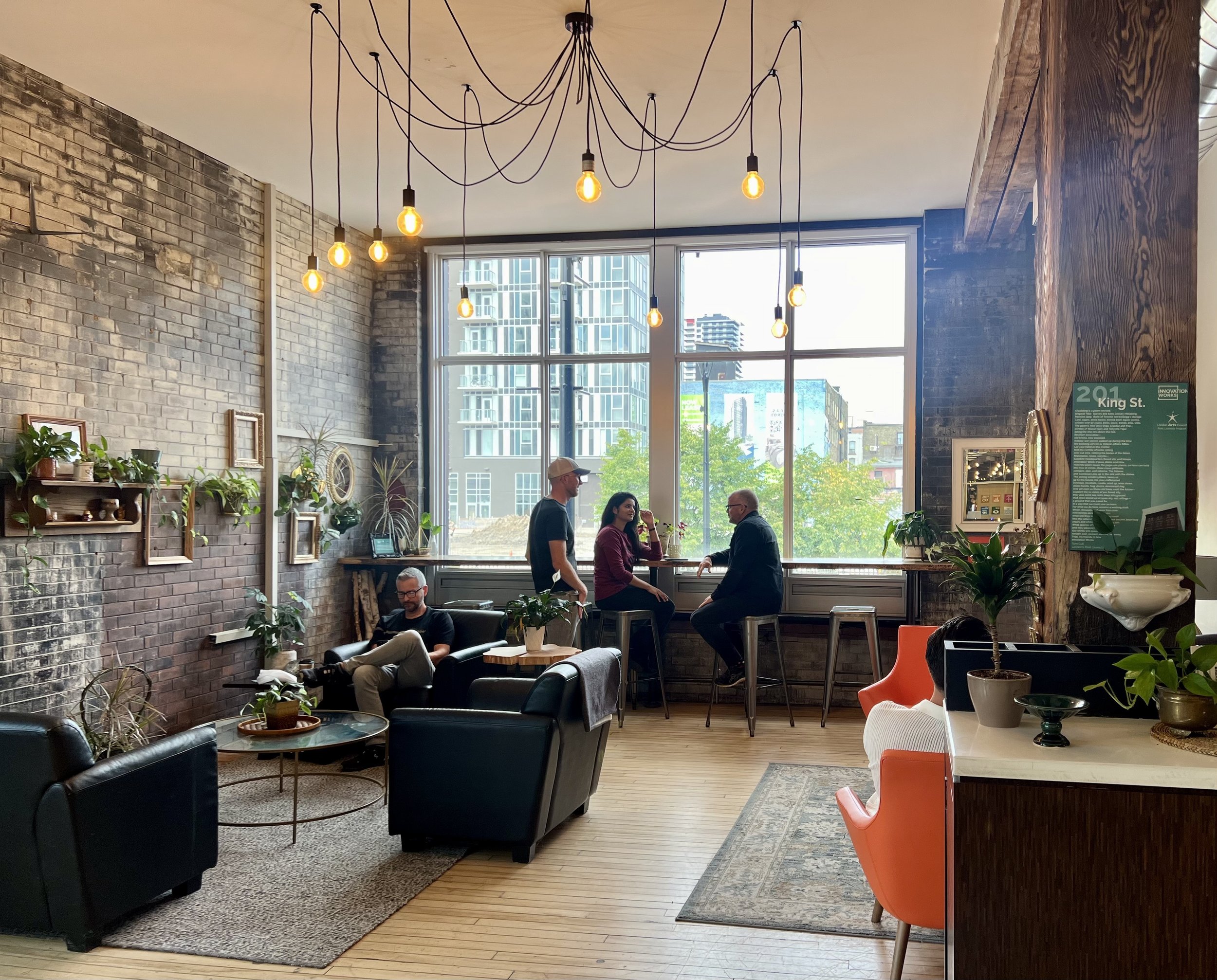
DISCOVER LONDON’S PREMIER CO-WORKING COMMUNITY SPACE FOR PURPOSE-DRIVEN PEOPLE & ORGANIZATIONS!
Innovation Works is a vibrant 40,000 sq-ft co-working space in London, Ontario, owned and operated by Pillar Nonprofit Network
Community gathers here. We believe that Together We Can help people connect to each other, feel less isolated, and collaborate for meaningful change.
Innovation Works is a community hub, home to nonprofits, charities, grassroots initiatives, and socially and environmentally conscious businesses, all united by a shared commitment to making a positive impact.
We work to create warm and welcoming meeting rooms, private offices and shared spaces to individuals and organizations invested in making communities better.
-

Co-working
We offer private office, personal desk and occasional workspace options.
-

Meeting Rooms
Host a meeting in one of our beautiful and functional spaces.
-

Event Space
Host your next workshop or fundraiser in our fully accessible event space.






